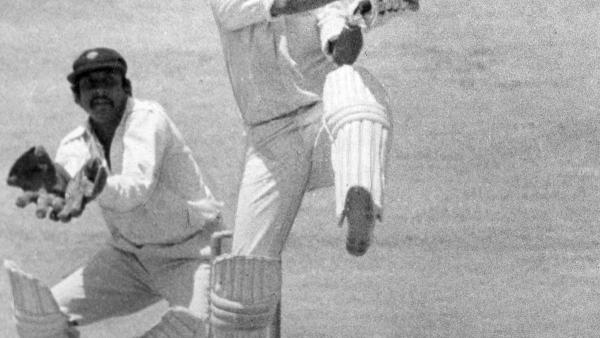Recent memoirs by two of India’s finest cricketers and heroes of the 1983 World Cup suffer from flaws that could have been easily eliminated. Mohinder Amarnath’s Fearless is better written, a good read overall and has a wealth of anecdotes. Syed Kirmani’s Stumped has its moments, too.
But what is astonishing is the disregard for fact-checking. We are told by Kirmani’s ghostwriter that Sunil Gavaskar made his debut in the West Indies in 1970-71 against the “mighty squad” of Michael Holding, Andy Roberts, Vanburn Holder and Keith Boyce. But Roberts didn’t make his debut until 1973-74, while Holding arrived two seasons later. At one point, the names are combined, and we get “such greats” as ‘Robert Holding’.
It is painful when books by important sportsmen, which add to the history of the game and give us insights into their lives, are shoddily done. The players tell their stories to their ghostwriters who ought to check them out with the editors.
Amarnath has fresh stories to tell. About players meeting with Kerry Packer’s man Lynton Taylor, for instance. The group showed “excitement of playing World Series Cricket.” Interestingly, in the foreword to Kirmani’s book, Sunil Gavaskar says, “There were other players who claim they were also approached… but they were only interested in the two of us.” Meaning Kirmani and himself. Turns out Amarnath actually signed the contract and sent it (when he was dropped again from the Indian team), but concludes that maybe it was all just Asif Iqbal taking the Indians for a ride.
He too has anachronistic passages, with Hrishikesh Kanitkar playing alongside him when it was Hemant Kanitkar, the father who did. Sometimes the “sun shines brightly on the horizon” at another time, ‘Tony Cozier’ takes a catch in Australia” when it was Gary Cosier and not the West Indies commentator who did so! A reluctance to name names ruins some terrific stories.
The love for his father, former India captain Lala Amarnath, and the enormous debt he owes him runs like a much-repeated pattern through the book. Amarnath takes us into the dressing room, where team meetings were sometimes not so much about tactics as about how to share the prize money.
There are tales about tight-fisted managers inviting the team out for dinner and then claiming refunds from the players, and about how his father’s machinations prepared him for the Indian team and possibly for a benefit at the CBFS in Sharjah.
When few Indian sportsmen write memoirs, the ghostwriters (and editors) of those who do have a responsibility to get everything right. Factual errors are annoying when information is easily available. The myth about Kapil Dev’s 175 not being telecast owing to a BBC strike, or Bishan Bedi’s “declaration” in Jamaica when actually India were all out with five batters absent hurt, is repeated.
Kirmani’s portion of his memoir ends on page 74. The remaining 100 pages are given over to “a journalist’s perspective” and quotes from teammates. Kirmani, one of our great wicketkeepers, deserved better.











